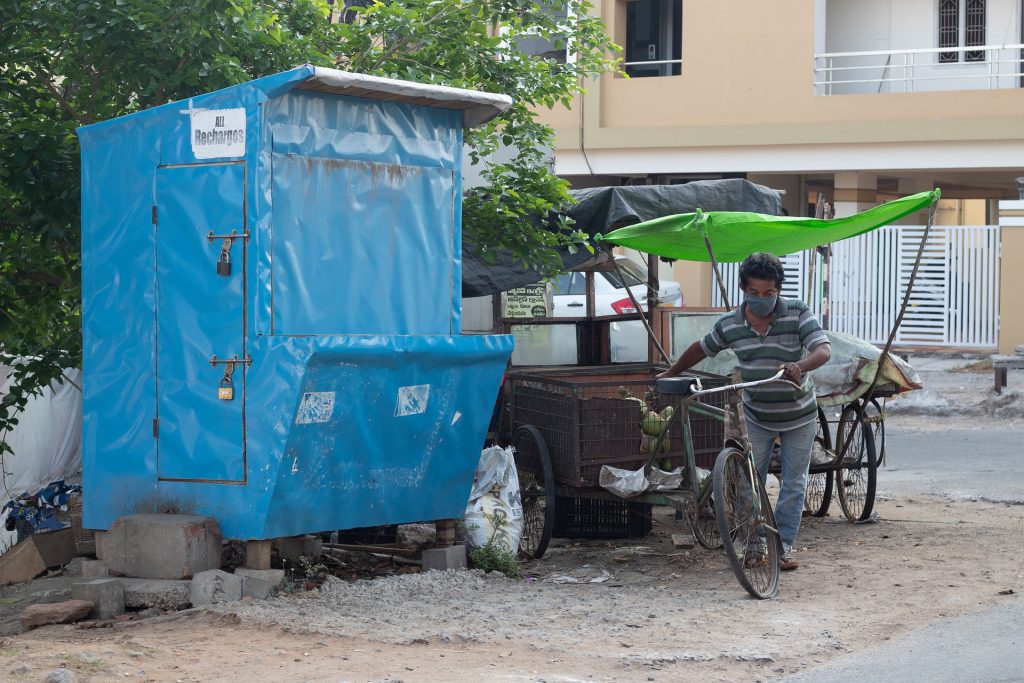5 min read
There is an urgent need to educate the masses about the importance of Non-Pharmaceutical Interventions (NPIs) for combating COVID-19. Based on learnings from the past pandemics, building awareness about executing the NPIs and promoting leadership at community level to ensure its compliance, may help in mitigating the crisis.
When we look into the past, the battle against smallpox has been the only successful attempt at complete eradication of a global disease, with efforts spanning over a century. Second best case is the eradication of polio. According to the World Health Organisation (WHO), though, type 1 polio virus is still active in at least three countries, the global incidence of polio cases has decreased by 99%.
While working on a WHO sponsored study in the early 2000, I have come across some interesting facts about the polio vaccine: [a] the first effective vaccine for polio was out in 1955 [b] five years later we had the oral polio vaccine (OPV) [c] global efforts to eradicate polio by WHO started in 1988 and [d] the ultimate fight to eradicate polio in India was more about understanding the socio-economic barriers to polio eradication and educating the population – specially the non-acceptor parents, than merely ensuring the availability of polio vaccine by maintaining the cold chain. After years of successful efforts in this direction, India announced eradication of polio in 2014.
It is important to reflect that despite having an easy-to-administer oral vaccine, it took 54 years and a gigantic effort – supported by the WHO, Rotary International and UNICEF – for a country like India to completely eradicate polio. Similarly, even if a vaccine is developed for COVID-19, despite advancements in infrastructure, history tells us that universal immunization might still take few decades and hence cannot be seen as a short or mid-term solution.
Why Educate the Public on Non-Pharmaceutical Interventions (NPIs)?
To mitigate the impact of pandemics, NPIs in the past have been considered the next best available solution by various governments globally. Closing the borders, shutting down the educational institutions & public places, restricting mass gatherings, washing hands, wearing a mask, social distancing, cough etiquettes, workplace protocols, quarantine, isolation, etc. are some of the widely used NPIs globally. Though experience from past pandemics suggests that some NPIs are only good in theory and it is very difficult to ensure compliance, NPIs are the only means available in the absence of a vaccine or any effective anti-viral drug.
However, if one doesn’t belong to a healthcare fraternity or hasn’t received any healthcare training in the past, it is difficult to properly execute even the simplest NPIs like washing hands and usage of masks. Though I thought I had a reasonable understanding about washing hands after reading WhatsApp forwards, I have learnt the right way to wash hands only during the last month while reading the book “Better” by Dr. Atul Gawande.
| Dr. Atul Gawande writes…“Even with the right soap, however, proper hand washing requires a strict procedure. First, you must remove your watch, rings and other jewelry. Next, you wet your hands in warm tap water. Dispense the soap and lather all surfaces, including the lower one-third of the arms, for the full duration recommended by the manufacturer (usually fifteen to thirty seconds). Rinse of thirty full seconds. Dry completely with a clean, disposable towel. Then use the towel to turn the tap off. Repeat after every new contact”.
“Stopping the epidemics spreading in our hospitals is not a problem of ignorance – of not having the know-how about what to do. It is a problem of compliance – a failure of an individual to apply that know-how correctly. But achieving compliance is hard. Each year according to the U.S Centers for Disease Control, two million Americans acquire an infection while they are in the hospital. Ninety thousand die of that infection. The greatest difficulty of infection control team is to ensure that clinicians do the one thing that consistently halts the spread of infections: wash our hands”. |
The success of any NPI depends on successful compliance. Successful compliance, by first ensuring communities are aware of the know-how (about NPIs), has a direct impact on the overall economy and not just on mitigating the health crisis. On the other hand, restricting activity by closing institutions and sealing state or national borders, in the long run, could mean disastrous economic outcomes – just like the current scenario. Thus, educating communities on NPIs and ensuring compliance will help in mitigating the crisis and improving economic outcomes.
Build the Capacity of Community Leaders & Community-Based Organizations
While working with an international organization on its disaster risk reduction (DRR) program in my early career, I learnt that the best DRR plans are those which are designed at community level. As the central authority can’t ensure compliance alone, community leaders and community based organizations become important. Plans designed otherwise have greater probability of falling apart or take more time before getting activated.
India has a strength of estimated 3.1 to 3.5 million registered non-government-organizations and most of them have grassroot presence and reach to local community leaders & community-based organizations. Engaging them during this unprecedented crisis should be the key focus of funding organizations and policy makers.
After realizing the importance of NPIs in mitigating the current crisis, we at Dr. Reddy’s Foundation launched an eight-hour program – SAMHITA, which has been designed with the support of healthcare experts and is matched with health sector council’s COVID-19 Warrior program. SAMHITA helps participants to: [a] protect themselves and their community members from the coronavirus, by enhancing their knowledge on the importance and correct usage of NPIs and, [b] voluntarily contribute as a COVID-19 Warrior, in Public, Private and NGO sectors, by equipping them with the necessary technicalities and other prerequisites.
We encouraged all the participants of the program to actively share the new information with their communities. Though SAMHITA has impacted more than 4000 youth & community members in the first 60 days of its launch, but in a country like India this is like a drop in the ocean. The need of the hour is to educate huge Indian population in quick time, and to engage community leaders and community-based organizations in ensuring NPIs compliance until we develop herd immunity. Policymakers and funders have a big role to play in this. We all have a role to play.


















